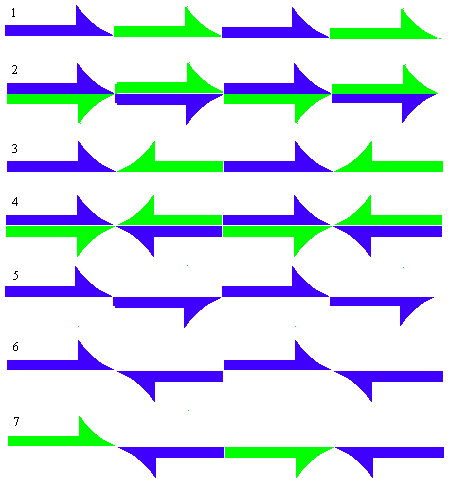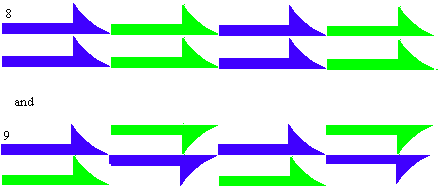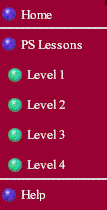Friezes Geometry, Level 2
Problem
What is this problem about?
There is a great deal of mathematics in everyday objects. Walls of rooms are no exception.
Wallpaper friezes exploit reflections, translations and rotations. Producing their own
friezes will give children the opportunity to explore all of the basic transformations of
the plane.
There are three transformations:
Translations (or shifts)
Rotations (or turns)
Reflections
Achievement Objectives
Geometry (Level 2)
- create and talk about geometric patterns which repeat, or which have rotational or reflection symmetry;
Mathematical Processes
- devise and use problem solving strategies to explore situations mathematically (make a
drawing, use equipment).
Resources
Grids
Paper rectangles to put into grids
Blackline master of the problem
Specific learning outcomes
The children will be able to:
- create a repeating pattern using geometric transformations (rotations, reflections, translations)
Teaching sequence
- Introduce the problem by looking at some wallpaper friezes – discuss the symmetry that they have.
- Introduce the problem shape and the grid to develop the frieze in.
- As a class develop one of the patterns.
- Pose the problem.
- Let the children investigate the problem in small groups using a grid and at least 8 of the half-arrow shapes. Remind them they must be put in the grid so that there is a pattern that will repeat indefinitely.
- As the children solve the problem encourage them to record their findings so that they
can share them later. This requires them to either draw or describe the pattern made. Ask
questions that focus on the symmetry of the pattern made:
How did you create the pattern?
Have you used reflection in your pattern? Show me?
Have you rotated the shape? Show me?
Have you shifted the shape? Show me how? - Share patterns made.
Have we found them all?
How do you know?
Extension to the problem
You might try to find actual wallpaper friezes that match up with the patterns found in the problem.
Solution
There are 7 different wallpaper friezes that can be made using the basic block in the picture. We list them all here.

Note: Possible patterns such as:

have the same symmetry as one of the 7 listed. For instance 8 = 1 and 9 = 5.
